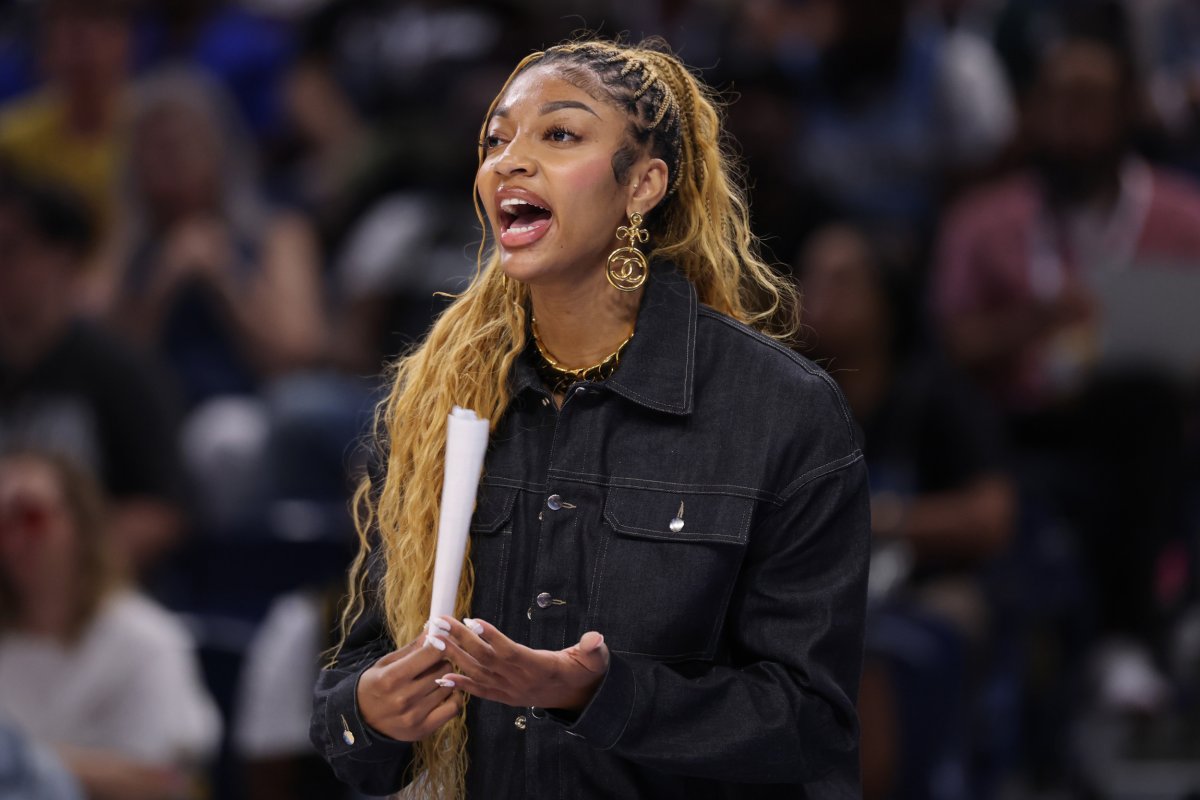In the world of professional sports, rivalries are the engines of drama, engagement, and, ultimately, revenue. But rarely does a rivalry captivate the public consciousness as swiftly and intensely as the one between WNBA rookies Caitlin Clark and Angel Reese. A new, dramatic chapter in their saga unfolded recently, not on the court, but in the court of public opinion and high-stakes business. It began with Clark’s visit to Chicago, Reese’s home turf, where she was greeted with a reception worthy of a hometown legend. It was then amplified by a stunningly blunt financial assessment from music icon and league founder, Ice Cube, that laid bare the market’s view of the two stars.

The Indiana Fever were in Chicago to play the Sky, but for the thousands of fans who descended upon the arena, it might as well have been a coronation. Caitlin Clark was treated not just as a visiting star, but as a cultural phenomenon. Videos went viral showing absolute pandemonium, with a sea of fans, young and old, clamoring for her attention, screaming her name, and thrusting jerseys and memorabilia forward in a desperate plea for an autograph. The fervor was so intense that commentators immediately began making comparisons to the kind of hero’s welcome once reserved for Chicago’s own Mount Rushmore athletes, like Michael Jordan and Derrick Rose.
Caitlin Clark Likely Not On Team USA Summer Olympics Women’s Basketball Team – Report
For hours, Clark stayed, signing autographs and interacting with the crowd. It was an organic, explosive display of star power. However, the context made it more than just a popular athlete meeting her fans. This was Chicago, the city Angel Reese now represents. Reese, the “Chi-Town Barbie,” has built a powerful brand around her confidence and on-court tenacity. One of her recent campaigns included the slogan, “Come to your trap, take over your trap.” For critics, Clark’s reception in Chicago was the ultimate, unspoken response. The narrative quickly formed online: Caitlin Clark had just walked into Angel Reese’s city and quietly took it over.

This visual spectacle of popularity was soon followed by a stark lesson in the business of stardom, courtesy of Ice Cube. The rapper and founder of the BIG3 basketball league had previously made headlines by offering Caitlin Clark a staggering $5 million to play in his league, an offer she ultimately declined to focus on the WNBA. The question was inevitably posed: Why wasn’t the same multi-million-dollar offer extended to Angel Reese?
Candace Parker Gets Brutally Honest About Sky Star Angel Reese – Newsweek
Speaking to the media, Ice Cube didn’t mince words. His explanation was devoid of sentiment and rooted firmly in financial reality. “With Caitlin Clark, it was just to unlock millions of dollars for the league,” he stated, clarifying that the investment was projected to bring in a massive return. When it came to Reese, the calculus was different. “They didn’t tell us the same thing about Angel Reese. So, I don’t know if we can make that same offer.”

He insisted the decision wasn’t personal; it was just business. “The men lie, women lie, the numbers don’t,” he remarked, quoting a popular saying. Ice Cube, a shrewd businessman, was not in the business of losing money. His assessment was that Clark’s ability to generate revenue—to sell tickets, drive viewership, and attract sponsorships—is, at this moment, unparalleled and in a category of its own. He effectively stated that while Reese is a star, her market value doesn’t currently justify the same level of investment as Clark’s.
150 Michael Jordan Chicago Bulls Stock Photos – Free & Royalty-Free Stock Photos from Dreamstime
These two events—the Chicago fan frenzy and Ice Cube’s blunt commentary—have intensified the debate surrounding the two athletes. On one side, there’s a perception that Reese has actively tried to position herself as Clark’s chief rival, seeking to attach her brand to the “Caitlin Clark effect” that has lifted the entire sport. From this perspective, the recent events are a public correction, a demonstration that while Reese is a formidable talent and a significant draw, she exists on a different plane of celebrity.
It’s crucial to acknowledge that Angel Reese is, by any objective measure, a star. She has a massive social media following, major endorsement deals, and a fierce, competitive spirit that has earned her a loyal fanbase. Her game is improving, and she is undeniably one of the most recognizable faces in the WNBA. The argument being made by observers is not that Reese lacks star power, but that it is a mistake to place her on the same level as Clark, who has transcended the sport to become a mainstream cultural figure.
The situation highlights a difficult truth: stardom is not just about talent, but marketability. Clark’s seemingly limitless appeal across demographics has created a financial whirlwind that every league, brand, and investor has noticed. Ice Cube was simply verbalizing what the market is already demonstrating. The pandemonium in Chicago was a living, breathing focus group that confirmed Clark’s unparalleled ability to move the needle.
As this rivalry continues to evolve, it forces a larger conversation about how we measure success and stardom in sports. Is it fair to constantly pit these two young women against each other? Or is this dynamic, this very rivalry, the key ingredient that is making the WNBA more popular than ever? For now, the narrative seems clear. Angel Reese may be building her empire in Chicago, but Caitlin Clark showed up and demonstrated that her kingdom has no borders. And in the cold, hard world of business, the numbers currently tell a story of two stars shining at very different magnitudes.